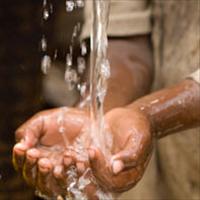GLOBAL: “Save the water” warn world weather watchers

The decade from 1998 to 2007 has been the warmest on record, said Michel Jarraud, secretary-general of the UN World Meteorological Organisation (WMO) in Bali, where a UN meeting on climate change is underway.
"The global mean surface temperature for 2007 is currently estimated at 0.41 degrees Celsius more than the 1961-1990 annual average of 14 degrees Celsius," Jarraud announced.
"The rise in temperature can be directly linked to global warming," said Avinash Tyagi, head of the climate and water department at WMO. "The Intergovernmental Panel on Climate Change (IPCC) has already projected that by 2020 up to 250 million people in Africa will be under severe water stress, and several million in Asia will be without access to fresh water."
The year 2005 was the "hottest ever", and 2007 the second "hottest", former US Vice-President Al Gore noted in a speech on 13 December. He urged industrialised countries to take action now to cut greenhouse gas emissions, warning that "the earth has a fever and it is rising ... it won't go away and heal itself, it requires intervention."
"We can only advise the decision-makers," said Jarraud, referring to the meeting in Bali. "We now know that greenhouse gas emissions are at their highest in the past 650,000 years."
Kyoto, Bali and beyond
The meeting in Bali will launch negotiations for a new deal after 2012, when the first phase of the Kyoto Protocol expires. The Protocol is a commitment made in 1997 by 36 industrialised countries to reduce greenhouse gas emissions by at least five percent against a 1990 baseline and forms part of the UN Framework Convention on Climate Change (UNFCCC).
The IPCC has suggested cuts of between 25 and 40 percent by 2020 to avoid a 2-degree Celsius increase in global temperature. That kind of temperature rise is expected to destroy 30 to 40 percent of all known species, with bigger, fiercer and more frequent heat waves and droughts, and more intense weather events like floods and cyclones.
Saving water
Access to water will be a critical issue for poorer nations, particularly in Africa and Asia, the WMO's Tyagi said. "There is an urgent need to build the hydrological capacity in these countries now, to ensure they have the capacity to adapt. The IPCC has also predicted that food production as a result of the pressure on water will halve in Africa."
In many instances there were simple solutions to save water, he added. "Water in Africa is often lost due to seepage, as unlined open channels are used to provide water for agriculture; the use of closed conduits could help save water." The WMO has a programme to enhance hydrological services in the world's Least Developed Countries.
Tyagi said the adaptation strategies being discussed in Bali did not take the predicted water shortages into account. Millions of people could also end up without access to water in Africa and tens of millions in Asia, as a result of salinisation. "We have to start integrating strategies into national action plans now," he urged.
Bypassing the deadlock
Gore asked rich countries to help the developing world with capacity, clean technology and adaptation. Long applause followed his statement that his country, the US, was "principally responsible" for the deadlocked state of talks in Bali.
The US, which has refused to ratify the Kyoto Protocol because it excluded China and India, two of the world's fastest growing economies, reiterated its position at the Bali conference.
Gore urged conference delegates to take "a path that goes around that black spot [implying the US and other countries which share its position]", and forge ahead with trying to set targets for emission cuts at a later stage - after US elections in 2008. He also called on the conference to implement the new deal in 2010, two years before the Kyoto Protocol expires in 2012.
 Back and Next - Back and Next
Back and Next - Back and Next See Also - See Also
See Also - See Also